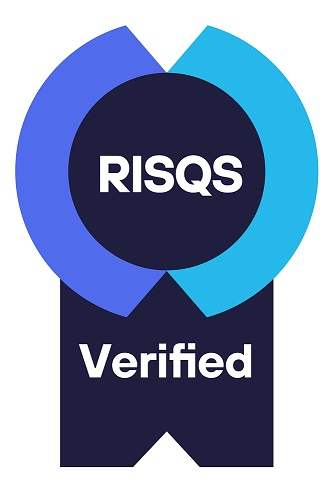Equality Policy
Introduction
Pace Security Services Ltd (hereinafter known as the Company) has a duty and responsibility to ensure that their staff operates in an environment that embraces and encourages equality and diversity and strives to be an employer for whom individuals want to work, promote best employment practice and reflect the diversity of the communities in which it operates.
Equality of opportunity means that an individual’s diversity is viewed positively and, in recognising that everyone is different, valuing equally the unique contribution that individual experience, knowledge and skills can make.
Scope of the Policy
The Company is committed to a policy of equal opportunities and its intention is to fully comply in all aspects of appropriate and current legislation. This policy relates to all aspects of employment, recruitment and selection procedures, career development, promotion, training, payment practices, and all other terms and conditions of employment. It is the responsibility of each employee at every level to promote Equal Opportunities and to pursue non-discriminatory policies and practices in employment and through behaviour language, attitude and actions so that no discriminatory practices occur.
It is our policy to promote Equal Opportunities throughout the company and to ensure that no employee or job applicant is less fairly treated or suffers any harassment because of discrimination whether directly, indirectly, through victimisation or harassment. Breaches of this policy will be dealt with appropriately and may lead to legal and / or disciplinary action, which may result in dismissal.
Principles
There are several statutory duties and “protected characteristics” that must be complied with and are detailed in the Equality Act 2010, which are:
| Term | Definition |
| Age | A person of a particular age group |
| Disability | A physical or mental impairment, and the impairment has a substantial and long-term adverse effect on that person’s ability to carry out normal day-to-day activities. |
| Gender reassignment | A person who is proposing to undergo, is undergoing or has undergone a process (or part of a process) for the purpose of reassigning the person’s sex by changing physiological or other attributes of sex. |
| Marriage and civil partnership | A person is married or is a civil partner. |
| Race | Race includes colour, nationality, ethnic or national origins. |
| Religion or belief | Any religion and includes a reference to a lack of religion. Belief or philosophical belief includes a reference to a lack of belief. |
| Sex | A reference to a man or to a woman. |
| Sexual orientation | A person’s sexual orientation towards persons of the same sex, the opposite sex, or either sex. |
The Equality Act 2010 provides a single framework to tackle disadvantage and discrimination of people with protected characteristics.
The company will work to protect defined groups of staff against unlawful treatment based on protected characteristics by ensuring that all staff are aware of their responsibilities in relation to equality and diversity. All staff will be briefed on equality and diversity.
The company is committed to and strives to ensure that every individual who works for the company, or who applies to work for it (providing that they have a legal right to work in the UK), will be treated fairly and equally valued regardless of their protected characteristics or other circumstances, including, social and employment status, or trade union/non-trade union membership.
The company will not discriminate against anyone who has a spent conviction under the Rehabilitation of Offenders Act 1974.
Under this Act, many ex-offenders are to be given certain employment rights if their convictions become ‘spent’.
In broad terms anyone who has been convicted of a criminal offence and who is not convicted of a further offence during a specified period becomes a ‘rehabilitated person’.
The company recognises that the ‘spent’ conviction does not have to be declared for most purposes such as a job application.
Employees are given protection against dismissal or exclusion from any office, profession, occupation, or employment (with some exceptions) and the company may not prejudice a person in any way because of a spent conviction.
The Directors and senior managers recognise the value of equality and diversity. They will work for the aims of this policy, best practice, and equality legislation to deliver a positive working environment for all staff.
Equality and diversity in all employment practices will be monitored and annual equality audits will be undertaken and provided to The Board covering workforce data (race, gender, age, disability, contract status i.e., part time); information relating to equality policies that are in place, pay and grading information and details of the monitoring processes used for equality and diversity. Where certain groups are found to be underrepresented within the company, the company will consider positive action.
The company will encourage the companies within which it operates to work in the spirit of this policy.
Even where not covered by the specific aspects stated within this Equal Opportunities policy, the Company shall not tolerate any form of harassment, victimisation or bullying within the workplace of its employees.
Definitions
| Term | Definition |
| Equality | Treating all people equal regardless of personal characteristics |
| Diversity | Recognising, valuing, and using the differences which people have |
| Direct Discrimination | Treating a person less favourably because of a particular characteristic covered by discrimination legislation |
| Indirect Discrimination | Applying criteria or practice equally to all people but which has the effect of disadvantaging a group of people covered by discrimination legislation and has a detrimental impact on an individual |
| Harassment | Unwanted conduct, real or perceived, that violates a person’s dignity or creates an intimidating, hostile, degrading, humiliating or offensive environment for them. |
| Bullying | A form of harassment which may be related to an abuse or misuse of power. |
| Victimisation | Treating a person less favourably because they have or intend to make a complaint or allegation or has given evidence in relation to a complaint. |
| Protected Characteristics | Age, disability, gender reassignment, marriage, and civil partnership in respect of eliminating unlawful discrimination, pregnancy and maternity, race (including ethnic or national origins, colour or nationality), religion or belief (this includes lack of belief) sex, sexual orientation |
Disabled Employees
In accordance with legislation, the company will not discriminate against current or prospective employees who have or have had a disability and will ensure adequate adjustments are made where appropriate, in support of this. Where relevant, the company shall also take reasonable steps to ensure the workplace is accessible, which may involve the implementation of physical or structural changes.
The Equality Act defines a disabled person as a person with a disability. A person has a disability for the purposes of the Act if he or she has a physical or mental impairment, and the impairment has a substantial and long-term adverse effect on his or her ability to carry out normal day-to-day activities. The person’s impairment will be either physical or mental *This definition is subject to the provisions
The Act states that a person who has cancer, HIV infection or multiple sclerosis (MS) is a disabled person. This means that the person is protected by the Act effectively from the point of diagnosis. Employees are requested to inform the appropriate senior manager if such diagnosis occurs and should note that any such disclosure shall be treated in the strictest confidence.
Equal Pay
The company will treat both its men and women employees equally, in respect of their terms and conditions of employment, if they are employed on ‘like work’, work rated as equivalent under a job evaluation study, or work found to be of equal value. This does not just cover remuneration alone but includes most terms in an employment contract. Variance within rates of pay due to length of service, performance, bonuses or individually agreed terms of contract will not be influenced by the gender of the employee. Terms covering special treatment because of pregnancy or childbirth or reflecting statutory restrictions on the employment of women are not covered.
Sex Discrimination
The company will not discriminate on grounds of gender, sex, marriage; because someone intends to undergo, is undergoing or has undergone gender reassignment; or due to an individual’s sexual orientation whether actual or perceived.
The company shall not tolerate sexual harassment, which is harassment of a ‘sexual nature’, nor shall it tolerate ‘sex-related harassment’ which is unwanted conduct related to an individual’s sex or that of another person. This shall therefore include allowing a working environment where sexual banter is commonplace and which, although not directed at an individual or caused by their presence, may nevertheless create an offensive environment for that person.
Race Discrimination
The company recognises and will not discriminate on grounds of race, colour, nationality (including citizenship), ethnic or national origins. The Equality Act is concerned with people’s actions and the effects of their actions, not their opinions or beliefs. Racial discrimination is not the same as racial prejudice.
Age Discrimination
The company shall not discriminate against any employee on grounds of age, whether young or old, which includes by way of job advertising, recruitment, working practices and duties within their roles. The company shall also consider any application by you to work beyond the normal retirement age as laid down by statute, provided application to do so is made at least 4 weeks prior to the expected date of retirement.
Religious Belief
The company will respect an individual’s religion, religious belief or similar philosophical belief and will not allow discrimination or harassment of that individual due to those beliefs.
Our Objectives
The aim of objectives is to focus on the major equality challenges for the company which will bring about positive effects and tangible benefits.
Objectives will therefore be set based on an understanding of the major issues facing protective groups covered by the duty on the basis of an analysis of information available for employment, service, policy and practice and other functions, (including engagement with stakeholders and functions that are contracted out)
Responsibilities
The Managing Director will:
have overall responsibility for ensuring that all reasonable steps are taken to prevent unlawful discrimination and promote equality within the company
receive and consider regular reports in order to evaluate the effectiveness of the policy.
review, and as necessary, amend the policy.
ensure it is satisfied that the company is taking all reasonable steps to strive to be representative of the population it serves.
The Operations Director and Senior team will:
have delegated responsibility for ensuring the implementation of the policy that staff within the company receive proper guidance and training and that the effectiveness of the policy is monitored and reviewed on a regular basis.
be responsible for reviewing and monitoring the effectiveness of this policy.
provide advice and guidance to staff and managers.
ensure that all complaints and alleged breaches of this policy are dealt with seriously, sensitively, confidentially and in a timely manner
Review employment practices and procedures when necessary to ensure fairness, and also update them and the policy to take account of changes in the law
All Managers will:
lead by example by promoting equality of opportunity and challenging discriminatory conduct.
ensure the policy is implemented and briefed to staff in their area of delivery.
expect their staff to do their best to promote equality of opportunity.
ensure that staff are aware of this policy, and should they become witness to, or aware of any breach, of this policy, they must report it immediately to their line manager
identify and highlight any examples of actual or potential unjustifiable discrimination within the limitations of legislation to the senior team.
deal with breaches to this policy promptly, sensitively, and confidentially
All staff will:
have responsibility for adhering to and practicing this policy
should co-operate and comply with the policy to ensure equality of opportunity.
not discriminate in the course of their duties nor induce or attempt to induce others to do so.
not victimise, harass or intimidate anyone on account of their protected characteristic or other circumstances, including, social and employment status, or trade union/non trade union membership;
Treat colleagues and stakeholders with dignity and respect.
inform their manager if they suspect that discrimination is taking place.
Promote diversity in the workplace.
The Company will
Not promote unlawful positive discrimination.
Monitor statistical information relating to gender, race, disability, and age, as a minimum will be collected and collated for all recruitment and selection exercises, staff in post, training, discipline and grievance process and staff exits.
Where monitoring is required against a population group base line, nationally available population statistics will be used.
An annual audit will take place, and be reported to management covering workforce statistics, policies, pay and grading and monitoring. Recommendations which come from senior management will be actioned.
Positive Action Initiatives
The aim of positive action is to ensure that people from underrepresented groups can compete on equal terms. Where certain groups are found to be underrepresented in the company, the company will consider positive action e.g., offering development to a specific group or encouraging applications through targeting advertising to a specific group of individuals.
Breach of Policy
If you feel that you have been treated inequitably in breach of the above policy, then you must initially raise the complaint through the company Grievance Procedure. The company shall then fully investigate any such complaint.
All employees are required to apply this policy in practice and failure to comply with, or deliberate breaches of, the above legislation will not be tolerated. Such instances will be investigated and dealt with under the company disciplinary procedure. If carried out deliberately or maliciously this will be regarded as Gross Misconduct and may dependent upon the severity of the breach result in summary dismissal.
Complaints
Any individuals who believe that an act in breach of this policy has taken place should raise the issue as soon as possible with the individual concerned and their line manager or any member of the senior team
If the complaint is against an individual’s line manager, then the individual should raise the issue as soon as possible with their line manager’s manager or another member of the senior team
Any complaint will be dealt with seriously in line with the Grievance Procedure and may lead to legal and / or disciplinary action, which may result in dismissal.
Complaints against the company will be dealt with using the Complaints Procedure
Further advice is available from the office manager <[email protected]>










